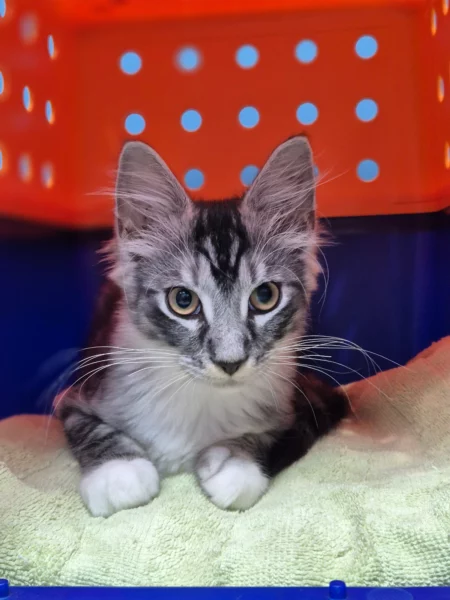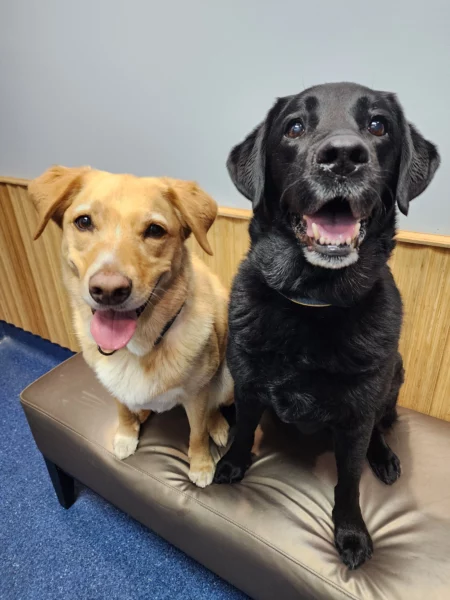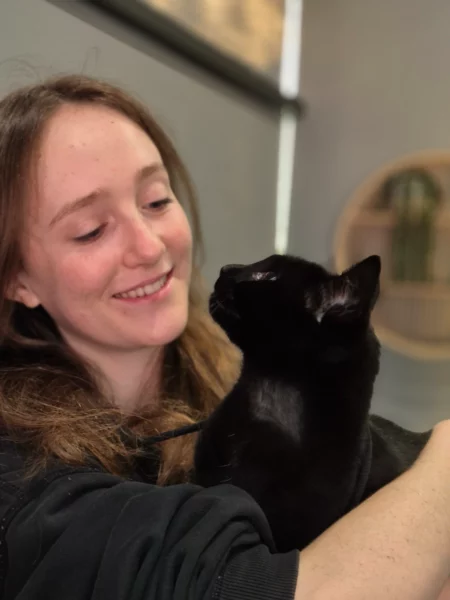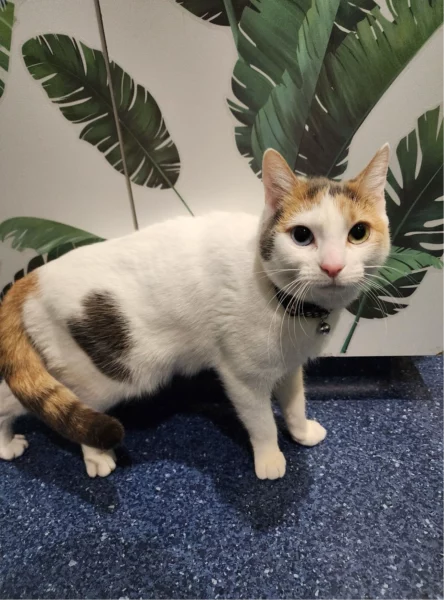Our
Pet Cardiology & Heart Health
PET Hearth Health
Supporting Your Pet’s Heart Health
Heart health is a vital part of your pet’s overall well-being. At Centenary Vet & Hospital Group, we take a proactive approach to cardiac care. Detecting heart disease early allows us to monitor heart function, diagnose potential issues, and provide the best treatment options to keep your pet healthy and active.
Whether your pet is a playful kitten, an energetic dog, or a senior companion, regular heart health checks are an important part of their veterinary care. Our experienced team uses advanced diagnostic tools to assess heart function. This provides peace of mind and helps your pet live a happy, healthy life.


Why Is Heart Health Important for Pets?
Heart disease in pets often develops gradually and may not show obvious signs at first. Many conditions worsen over time, making early detection essential for effective management. Routine heart health checks help identify potential issues before they affect your pet’s well-being and allow for timely intervention.
Some pets have a higher risk of heart disease due to age, breed, or existing health conditions. If your pet shows signs of fatigue, labored breathing, or a persistent cough, a heart health assessment is recommended. While coughing can have various causes, it may indicate heart-related issues, especially in dogs with congestive heart failure.

Why Choose Centenary Vet & Hospital Group for Your Pet’s Heart Care?
At Centenary Vet & Hospital Group, we treat your pet like family. Our experienced veterinarians and dedicated nursing team provide compassionate and thorough heart care in a warm and welcoming environment. We take the time to understand your pet’s needs and ensure each visit is as stress-free as possible.
We know that some pets feel anxious during vet visits, especially when dealing with heart conditions. Our team focuses on creating a calm and supportive experience to help pets feel at ease. With gentle handling techniques and personalised attention, we make sure your pet stays comfortable throughout their heart health check.
By taking a proactive approach to pet cardiology, we identify and manage heart conditions early. This allows your furry companion to enjoy a happy and healthy life.

What Happens During a Pet Heart Health Check?
At Centenary Vets, our heart health checks provide a thorough assessment of your pet’s cardiovascular system. We evaluate heart function, detect potential concerns, and recommend the best care plan. Here’s what you can expect during a typical heart health check:
01
Physical Examination
A physical examination helps us assess your pet’s overall heart health. We listen to the heart and lungs, checking for murmurs, irregular rhythms, or breathing difficulties. Identifying these early signs allows us to recommend further diagnostic tests if needed.
02
Echocardiography (Heart Ultrasound)
Echocardiography is a non-invasive ultrasound that provides a detailed view of the heart’s structure and function. This test helps us detect valve disease, heart enlargement, and fluid buildup, allowing for early intervention and tailored treatment.
03
Electrocardiography (ECG)
An ECG measures the electrical activity of the heart. This test helps us detect arrhythmias, irregular heartbeats, or other cardiac abnormalities that may require treatment or ongoing monitoring.
04
Chest X-rays
Chest X-rays help assess heart size, lung health, and any fluid buildup that could indicate heart disease or other complications. This imaging provides essential information for diagnosing and managing cardiac conditions.
05
Blood Pressure Monitoring
High blood pressure can strain the heart and contribute to serious health issues. By measuring your pet’s blood pressure, we can detect hypertension early and recommend appropriate treatment to protect heart health.
Treatment & Ongoing Care
Each pet’s heart condition is unique, and treatment plans are tailored to their needs. Depending on the diagnosis, treatment may include:
- Medications to support heart function and manage symptoms.
- Nutritional recommendations for heart-healthy diets.
- Lifestyle modifications to prevent excessive strain on the heart.
- Ongoing monitoring to track progress and adjust treatment as needed.
At Centenary Vets, we work closely with pet owners to ensure the best possible outcome for every pet.

What Our Customers Say
Highly recommended 🌟🌟🌟🌟🌟
The care is excellent from the moment you walk in to the moment you walk out. They have been caring for our dogs for many many years through many health issues and surgeries. They are always looking at ways to improve to ensure they give the best care to our fur babies 💝
Sam Foster
Amazing people and service. My rescue dog is quite timid with new people and places but she happily goes in and takes all the attention she can get here.
Tegan
Just the best vets. Dr Georgia is amazing and is so good with my 2 fur babies. She is caring and has such a great way of dealing with the 2 of them. I would not take my 2 to any other vet
Natasha Milne
Frequently Asked Questions
How do I know if my pet has heart disease?
Common signs of heart disease in pets include persistent coughing, difficulty breathing, fatigue, fainting, or a swollen abdomen. If your pet shows any of these symptoms, we recommend scheduling a heart health check as soon as possible.
Can heart disease in pets be treated?
Yes! While some heart conditions are progressive and require lifelong management, many can be controlled with medications, dietary changes, and lifestyle adjustments. Early diagnosis improves treatment options and outcomes.
Do certain breeds have a higher risk of heart disease?
Yes, certain breeds are more prone to heart conditions. Small-breed dogs (such as Cavalier King Charles Spaniels) often develop Mitral Valve Disease (MVD), while large-breed dogs (such as Dobermans and Great Danes) are at higher risk for Dilated Cardiomyopathy (DCM). Hypertrophic Cardiomyopathy (HCM) is the most common heart condition in cats, particularly in breeds like Maine Coons and Ragdolls.
Can I prevent heart disease in my pet?
Yes, certain breeds are more prone to heart conditions. Small-breed dogs (such as Cavalier King Charles Spaniels) often develop Mitral Valve Disease (MVD), while large-breed dogs (such as Dobermans and Great Danes) are at higher risk for Dilated Cardiomyopathy (DCM). Hypertrophic Cardiomyopathy (HCM) is the most common heart condition in cats, particularly in breeds like Maine Coons and Ragdolls.
Will my pet need heart medication for life?
It depends on the diagnosis. Some pets require lifelong medication to manage symptoms, while others may need temporary treatment for specific conditions. Regular veterinary check-ups ensure the treatment plan is adjusted based on your pet’s progress.
How often should my pet have a heart check-up?
For pets with known heart conditions, we recommend regular monitoring every 3 to 6 months. Senior pets and breeds at risk should have annual heart health screenings, even if no symptoms are present.
Family of Pet Lovers Today!
Discover why Centenary Vet & Hospital Group is the trusted choice for pet healthcare. Contact us now!
